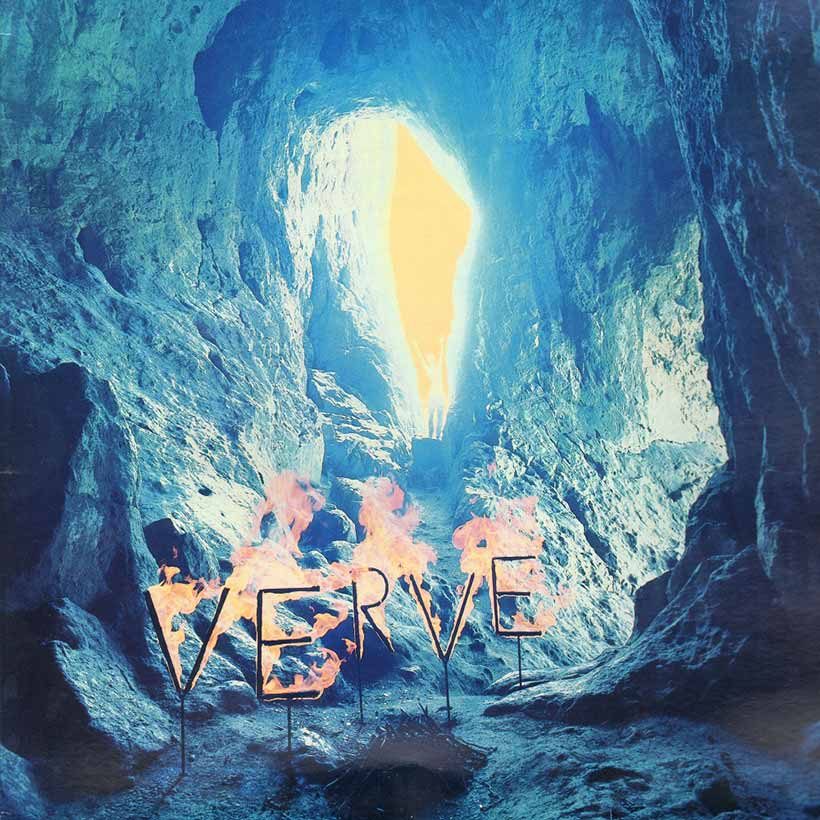‘A Storm In Heaven’: How The Verve Whipped Up A Classic Debut Album
Approximating the sound of the ultimate high, ‘A Storm In Heaven,’ sent the band – and British psychedelia – into the stratosphere.

“Hello, it’s me – crying out, crying out. Are you there?” Richard Ashcroft’s voice fights its way through a blizzard of guitars and ghostly echoes, as if he’s deep inside the otherworldly cave pictured on the front of The Verve’s debut album, A Storm In Heaven, which was released on June 21, 1993. As far as greetings go, the song, “Star Sail,” is a memorable statement of intent: newly signed to Virgin’s independent Hut imprint, The Verve had made a name for themselves with a string of EPs that marked them out as the bastion of British psych in the early 90s. Nick McCabe’s guitar squalls were as much about tone and texture as they were any melodies that might fly off into the ether, enveloping singer Richard Ashcroft’s voice – his lyrics often made up on the spot – as bassist Simon Jones and drummer Peter Salisbury drove the groove forward behind them.
Listen to A Storm In Heaven now.
“The Verve are one of the only bands that I’ve ever begged to work with,” producer John Leckie recalls, over two decades later. “I just couldn’t believe what I was witnessing.” No small praise from a man who’d engineered Pink Floyd’s The Dark Side Of The Moon, worked with Syd Barrett and latter-day psychonauts Robin Hitchcock and XTC alter-egos The Dukes Of Stratosphear, and produced The Stone Roses’ debut. With A Storm In Heaven, however, he sent the legacy of British psychedelia into the stratosphere.
An antidote to both the nihilistic grunge movement in the US and the wry postmodernism of the emerging Britpop scene, The Verve cared little for trends (Ashcroft – famously – cared even less for shoes). Later noting that “studio culture was still stuck in the aesthetics of 80s recording techniques”, McCabe would admit that the sound he wanted “was about the tape echo and the reverb.”
“He didn’t treat the guitar like a guitar,” Simon Jones adds. “He didn’t want to be a guitar hero. He wasn’t into Jimmy Page… It was all about texture.”
Together, McCabe’s leftfield (for the time) influences – Cocteau Twins, Can – and Ashcroft’s phenomenal drive pushed the band to new heights, even in the short time between signing a record deal and recording the album. “The band that Virgin signed, we ditched early on,” McCabe confirms. “The early demos were like Rolling Stones power-pop tunes. They bore no relation to what ended up on A Storm In Heaven.”
The album’s title couldn’t have been more apt. The group’s dynamic range, Ashcroft’s life-affirming, star-gazing lyrics – this was the sound of the ultimate high in 1993. But it was no mere exercise in guitar effects and indulgent wig-outs. Ethereal flute lines creep into “Virtual World”; a free-jazz skronk adds an extra sonic dimension to “The Sun The Sea.” Even Dr. John’s Gris-Gris LP was a touchpoint for Peter Salisbury (if anyone had groove, it was the good doctor’s drummer, John Boudreaux). The results were, as McCabe says of “Beautiful Mind,” a “landscape for the imagination.”
“It was pretty much improvised,” Jones recalls, noting that, though the band refused to put their earlier singles on the record, they didn’t have enough material to make an album. “It was quite bold on our part to actually blag that and not tell the record company,” he adds.
But the band were moving at a furious pace in those days. They couldn’t play enough and Leckie couldn’t record enough. Ashcroft even finished his vocals for “Blue” at 6am of the morning that their record label expected the master tapes – which only makes it all the more remarkable that, among the maelstrom, the song stands out for pointing the way to the future. Written towards the end of the sessions, it marks the point where The Verve managed to translate their free-form live shows into the studio. By the time of their second album, released two years later, in 1995, they’d added the definite article to their name and introduced a more structured approach to songwriting. A Storm In Heaven, however, remains The Verve’s big bang.












